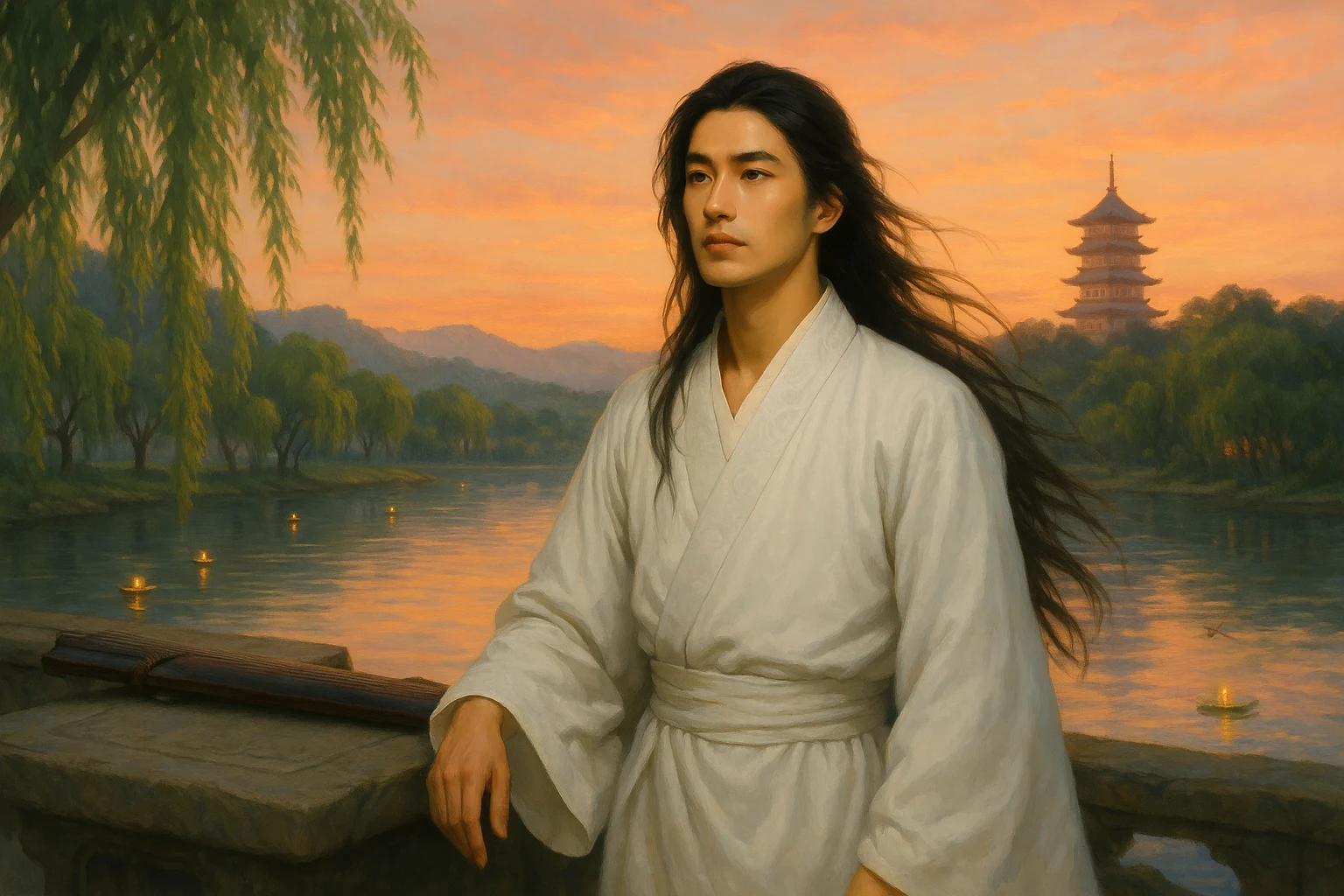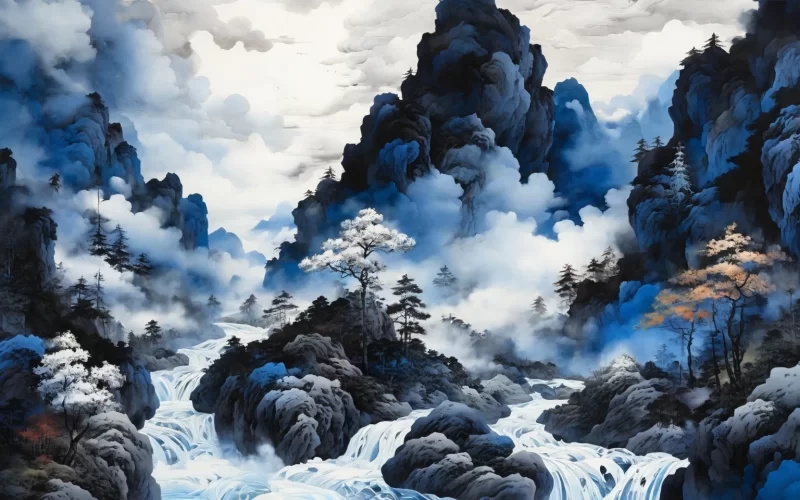Behold the White Cloud Fountain on the sky-blue Mountain!
White clouds enjoy pleasure while water enjoys leisure.
Why should the torrent dash down from the mountain high
And overflow the human world with waves far and nigh?
Original Poem:
「白云泉」
白居易
天平山上白云泉,云自无心水自闲。
何必奔冲山下去,更添波浪向人间。
Interpretation:
In the tenth year of Yuanhe (815), Bai Juyi was demoted to Jiangzhou Sima due to slander by treacherous officials. His official career suffered setbacks, and his mindset gradually changed. Later, he was recalled to the capital, but his career remained unremarkable. By the time he was appointed as the governor of Suzhou, he was already in his later years. Although still in office, Bai Juyi had grown weary of the complexities of officialdom and longed for a life of simplicity and tranquility. "White Cloud Spring" was written during his tenure in Suzhou, inspired by the sight of the White Cloud Spring in Mount Tianping. The poem conveys his desire to break free from worldly constraints and pursue a life of peace and detachment.
First Couplet: “天平山上白云泉,云自无心水自闲。”
The poet describes the natural scenery of Mount Tianping, where white clouds float freely in the sky and spring water flows gently. The clouds are carefree, and the spring water moves at ease, embodying a state of tranquility and detachment. The words “无心” (without intention) and “自闲” (naturally at ease) are not only depictions of nature but also reflections of the poet’s emotions, expressing his yearning for a peaceful and untroubled life.
Second Couplet: “何必奔冲山下去,更添波浪向人间。”
The poet questions why the spring water must rush down the mountain, only to stir up waves in the mortal world. Here, the flowing spring serves as a metaphor for himself—just as the water leaves its peaceful source to enter the chaotic human world, so too has Bai Juyi been drawn into the turmoil of officialdom. This line conveys his weariness with worldly affairs and his longing for a life of seclusion and tranquility.
Writing Characteristics:
This poem features simple and natural language with a profound and ethereal atmosphere. The poet skillfully employs metaphor, using the carefree nature of clouds and the tranquil flow of the spring to symbolize a detached and serene state of mind. At the same time, the imagery of the spring’s downward rush serves as an implicit reflection on the poet’s own life, revealing his inner conflict between engagement and withdrawal. The poem harmoniously blends emotion with scenery, constructing a refined landscape that mirrors the poet’s evolving mindset.
Overall Appreciation:
Through the depiction of the White Cloud Spring in Mount Tianping, this poem conveys Bai Juyi’s longing for a life free from worldly entanglements. The spring represents the ideal of serenity and contentment, yet its inevitable descent into the human world mirrors the poet’s own entanglement in official affairs. With its concise yet deeply philosophical lines, the poem encapsulates Bai Juyi’s shift toward a more detached and reclusive worldview in his later years.
Insights:
This poem reflects Bai Juyi’s late-life philosophy, transitioning from active participation in society to an acceptance of nature’s course and detachment from worldly ambitions. Through the imagery of clouds and spring water, he expresses a longing for freedom and tranquility while subtly lamenting the conflicts of the human world. The poem’s use of natural symbolism to convey personal sentiments lends it a profound and thought-provoking quality.
Poem translator:
Xu Yuan-chong (许渊冲)
About the poet:

Bai Juyi (白居易), 772-846 AD, was originally from Taiyuan, then moved to Weinan in Shaanxi. Bai Juyi was the most prolific poet of the Tang Dynasty, with poems in the categories of satirical oracles, idleness, sentimentality, and miscellaneous rhythms, and the most influential poet after Li Bai Du Fu.












